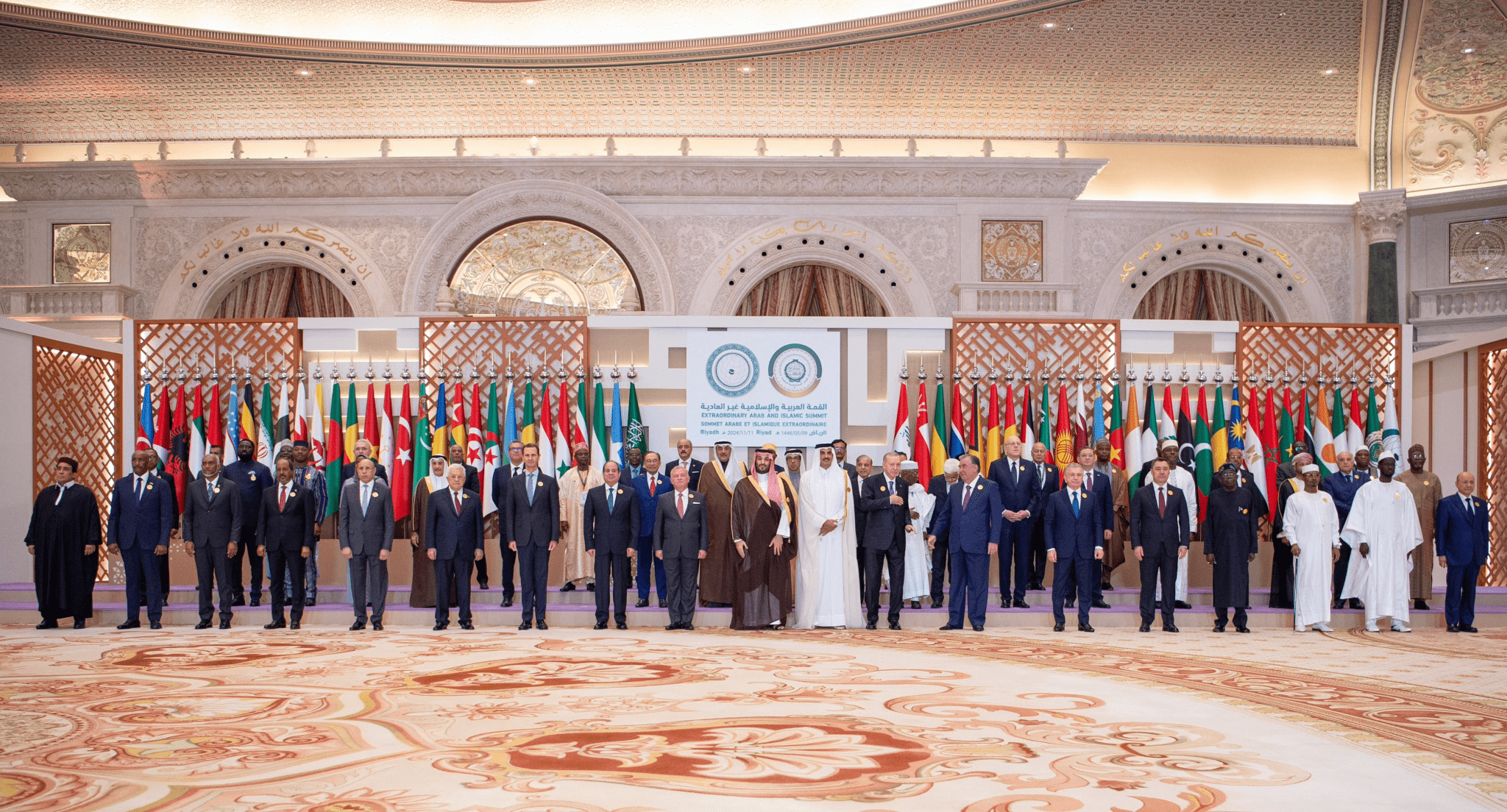
Arab League and Islamic Leaders Urge Suspension of Israel’s United Nations Membership in Response to Intensifying Gaza and Lebanon Conflict
Fiona Nanna, ForeMedia News
5 minutes read. Updated 11:11AM GMT Tues, 12th November, 2024
In a significant diplomatic maneuver, leaders from Arab and Islamic nations have called for the suspension of Israel’s membership in the United Nations, aiming to amplify international scrutiny and action over the escalating violence in Gaza and Lebanon. The proposal, marked as an urgent measure, underscores the profound concerns shared by Middle Eastern nations regarding the sustained conflict that has drawn global attention and humanitarian alarm.
Summit in Riyadh Emphasizes Collective Responsibility
At a landmark summit in Riyadh, Saudi Arabia, Arab League Secretary-General Ahmed Aboul Gheit emphasized the severity of the situation, noting that the proposal to freeze Israel’s UN membership would be a “major step” in addressing the grievances that Arab and Islamic nations have voiced for decades. He reminded leaders that Israel’s 1949 UN admission, based on Resolution 181, came with specific obligations that, in his view, remain unfulfilled.
“There is a paragraph in this text that I find very important and vital, a paragraph that talks about moving before the General Assembly to freeze Israel’s membership,” Aboul Gheit declared, stressing the importance of this historic move.
Strengthening Global Alliances
Expressing confidence that a broad coalition would support the initiative, Aboul Gheit noted that the proposal is being pursued by both the Arab League and the Organization of Islamic Cooperation (OIC), presenting a united front to the international community. This unity, he added, demonstrates a robust determination to hold Israel accountable for actions perceived as violations of international law.
Saudi Foreign Minister Prince Faisal bin Farhan also addressed the summit, reaffirming Saudi Arabia’s commitment to peaceful resolutions and underscoring the need for an internationally accountable approach. “We must not allow the international community to ignore Israeli actions or justify silence,” he remarked at a press briefing, calling for unwavering transparency in addressing the conflict.
Arms Embargo and International Pressure on Israel
The summit’s concluding statement took a bold stance, urging countries worldwide to halt any transfer or export of weapons and ammunition to Israel. This proposition aligns with a Turkish-led initiative, which has gained substantial backing with 52 nations, including 18 core countries and the support of both the OIC and the Arab League. The initiative seeks to influence the UN Security Council and other international bodies to act decisively on the issue, aiming to curtail arms flows into the region.
Furthermore, the proposal encourages worldwide support, urging countries to adopt a unified stance against military support for Israel amid the Gaza and Lebanon crisis. Leaders believe that such international cooperation is crucial for de-escalation and advancing peace.
A Significant Shift in Middle East Strategy
The Riyadh summit reflects a pivotal shift in Middle Eastern diplomatic strategy. By pressing for a UN membership freeze for Israel, Arab and Islamic nations are adopting a bolder approach to international relations, hoping to influence global perspectives on the Israel-Palestine conflict. With a surge in support from various countries, this strategic alignment marks a notable shift from previous diplomatic appeals, signaling a new era of intensified advocacy on the international stage.
This call for UN action represents a critical moment for the Arab and Islamic world in its pursuit of lasting peace and justice in the Middle East, as leaders urge the international community to play a more constructive role in resolving the ongoing humanitarian crisis.
Meta Description:
Arab and Islamic leaders have urged the UN to consider freezing Israel’s membership, citing the escalating violence in Gaza and Lebanon. This unprecedented diplomatic move, backed by numerous countries, aims to halt arms transfers and promote peace in the Middle East.

